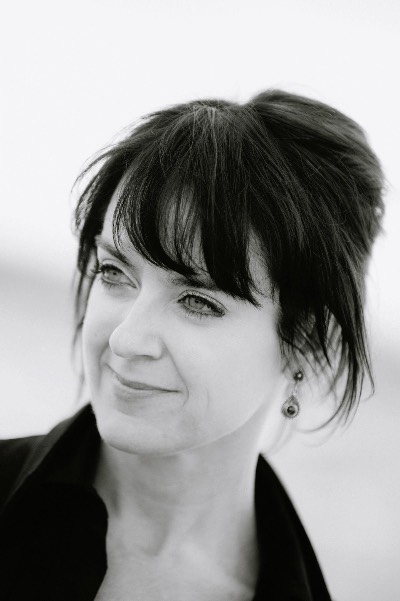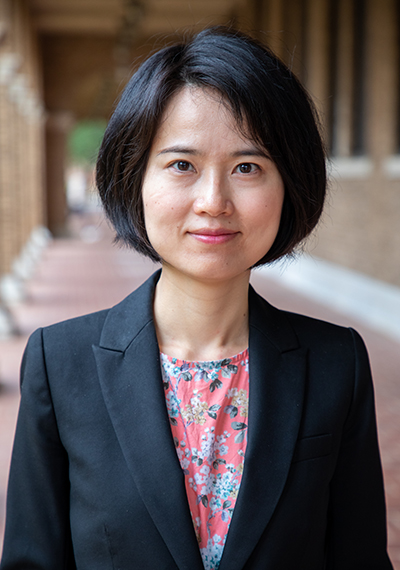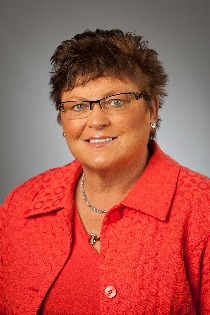Research Spotlight on Women Faculty: Charlotte Boye-Christensen, Yisha Xiang, Debbie Laverie
March 25, 2020 |
During March, Texas Tech is celebrating women faculty who exemplify excellence in research, scholarship, creative activity, teaching, and mentoring.
Charlotte Boye-Christensen
Associate Professor; Head of Dance; School of Theatre and Dance

Boye-Christensen, a native of Copenhagen, has been commissioned to create new work for: Milwaukee Ballet, Singapore Dance Theatre, Danish Dance Theatre, Ballet West, Compania Danza Contemporanea CCU in Mexico, Verb Ballets in Cleveland, Ballet de Camaguey in Cuba, Nashville Ballet II, Tisch School of the Arts, London Contemporary Dance School's Edge Dance Company, and Utah Symphony and Opera.
What inspired you to work in your field/area of expertise?
I became interested in pursuing a professional career as a choreographer when I was a young adult. Since graduating From Tisch School of the Arts in NYC I have intentionally worked with a wide range of companies from Ballet West/Milwaukee Ballet/Singapore Dance Theatre/Nashville Ballet to Ririe-WoodburyDance Company/Verb Ballets/Danish Dance Theatre and more to constantly bridge the two forms – Ballet and Contemporary Dance. My movement vocabulary has become distinctly recognizable because of this continuous, rigorous research into form. I have always been interested in combining my work on the proscenium stage with work that takes place in non-traditional performance spaces. I have always been curious about exploring and presenting work in non-proscenium environments in order to discover, engage and present unexpected story telling opportunities.The consideration of unique environments feeds the choreography and alters audience perspective on both space and the experience of dance. And last but not least collaborations have been the bedrock of my creative research from the beginning. I have strived to continuously engage artists from other fields in my creative process. This is largely due to a need for dialogue, a dialogue that is not limited to my own art form but which reaches across the Arts.
Who inspired you to pursue academia?
There wasn't one specific person who inspired me. I have always done choreographic residencies at Universities throughout the US and internationally from the beginning of my career and I have always enjoyed teaching in these settings. I enjoy the dialogue that happens in teaching and how it moves and clarifies my understanding of my artistic and professional work,
My choreographic palette expands with each new commission and collaboration. The students with whom I work influence and add to my understanding of my own choreographic voice through their interpretation of the movement material that I present. I have to be conscious of language, clarity of intention, clarity of demonstration, and awareness of cultural context. I think that is healthy and helps me in my quest for a more substantial, nuanced, refined delivery of information. I love the dialogue that can be ignited through the teaching of dance in different cultural contexts and the constant reminder of how important it is to have a global perspective in teaching, to remind me to do my homework and be aware of trends and directions in our field.
What would you tell your female students interested in pursuing an academic career?
To get some professional experience first under their belts in order to discover where their area of research and interest lies, and then to pursue academia with rigor, resilience and fearlessness. To remain curious and creative in their teaching.
I do not want them to limit themselves when it comes to shaping their careers.
To forge international connections with other academics, which could provide invaluable opportunities. In these times I think it is important to encourage turning outwards to the world. Cultural connections are so significant in our field in addition to one's personal growth.

Yisha Xiang
Assistant Professor; Department of Industrial, Manufacturing & Systems Engineering
 Xiang's research interests include system reliability modeling and optimization, maintenance
optimization, inventory control, and operations research.
Xiang's research interests include system reliability modeling and optimization, maintenance
optimization, inventory control, and operations research.
What inspired you to work in your field/area of expertise?
In our daily lives, even the simplest decisions carry some level of uncertainty. In choosing a parking space in a grocery store parking lot, there will be at least the possibility that a closer one to the entrance door is unoccupied. So, how does the uncertainty impact our decision making? The study of decision making under uncertainty is a vast subject. I have been fascinated by the beauty of the rich mathematical theory behind it and the wide range of applications it encompasses. My primary research interests are reliability and maintenance optimization, decision making under uncertainty, and statistical learning methods with applications in manufacturing, energy, and healthcare. My work in reliability has focused on developing general and systematic methodologies for effective reliability modeling and maintenance planning for critical complex systems operating in dynamic environments, such as oil and gas exploration, aerospace, and power generation. My research group has developed a broad class of general stochastic models that can integrally handle the complexities of degradation processes under random environments; we have also created a data-driven decision framework that leverages both real-time and historical information to make accurate prognostic results and better-informed maintenance decisions under various uncertainties.
Who inspired you to pursue academia?
I have been very fortunate to have many important people in my life who inspired me to pursue academia. My parents were born in the 1950s in China and did not have opportunities to attend colleges due to historical reasons; however, they never gave up their desires to learn. They have shown me through their success of getting associate degrees by taking adult self-study examinations while working a full-time job. I will always remember watching my mom studying calculus while sleeping by her when I was a kid. They have encouraged me to pursue advanced degrees and be a useful person to the society. My husband has and continues to support and encourage me through the difficult times in academic life. I am also very grateful for my PhD advisor, Dr. Richard Cassady, and my colleagues for their support and great work that have inspired me to continue pursuing my academia goal.
What would you tell your female students interested in pursuing an academic career?
In spite of all the difficulties in an academic life, life in academia is privileged
and has many advantages. As academics, we get to work on things we deeply care about.
We can devote all our research time to fleshing out problems we have strong interests
in, while in other places you might be working on your topic of interest for only
a limited amount of time. We also enjoy the freedom to set our own schedule and determine
our own research directions. More importantly, we have the opportunity to teach and
mentor students. We get to share with students our passion and curiosity for learning,
innovating, and changing the world for the better – even though the change might be
very small.
Debbie Laverie
Professor of Marketing; Minnie Piper Stevens Professor; Area of Marketing and Supply
Chain Management
 Laverie's areas of expertise include macromarketing, consumer behavior, branding,
sports marketing, and scholarship of education.
Laverie's areas of expertise include macromarketing, consumer behavior, branding,
sports marketing, and scholarship of education.
What inspired you to work in your field/area of expertise?
My research explores the role of consumption in everyday activities, branding, macro issues in marketing, digital marketing and the scholarship of teaching and learning. I love exploring what motivates consumer and students to behave and to understand the why behind that behavior. Both of my parents were marketers and that was the root of my inspiration.
Who inspired you to pursue academia?
My mentor and professor, in my Master's program, Patrick Murphy at the University of Notre Dame.
What would you tell your female students interested in pursuing an academic career?
If you love to pursue new knowledge and to share that knowledge with students academia is for you. You have the freedom to follow your interests. Mentoring students is extremely rewarding. I take pride in helping students succeed in their careers. I would suggest female students find a good mentor and to pursue what you love. Work hard and the rewards will follow.
Office of Research & Innovation
-
Address
Texas Tech University, 2500 Broadway, Box 41075 Lubbock, TX 79409 -
Phone
806.742.3905 -
Email
vpr.communications@ttu.edu
